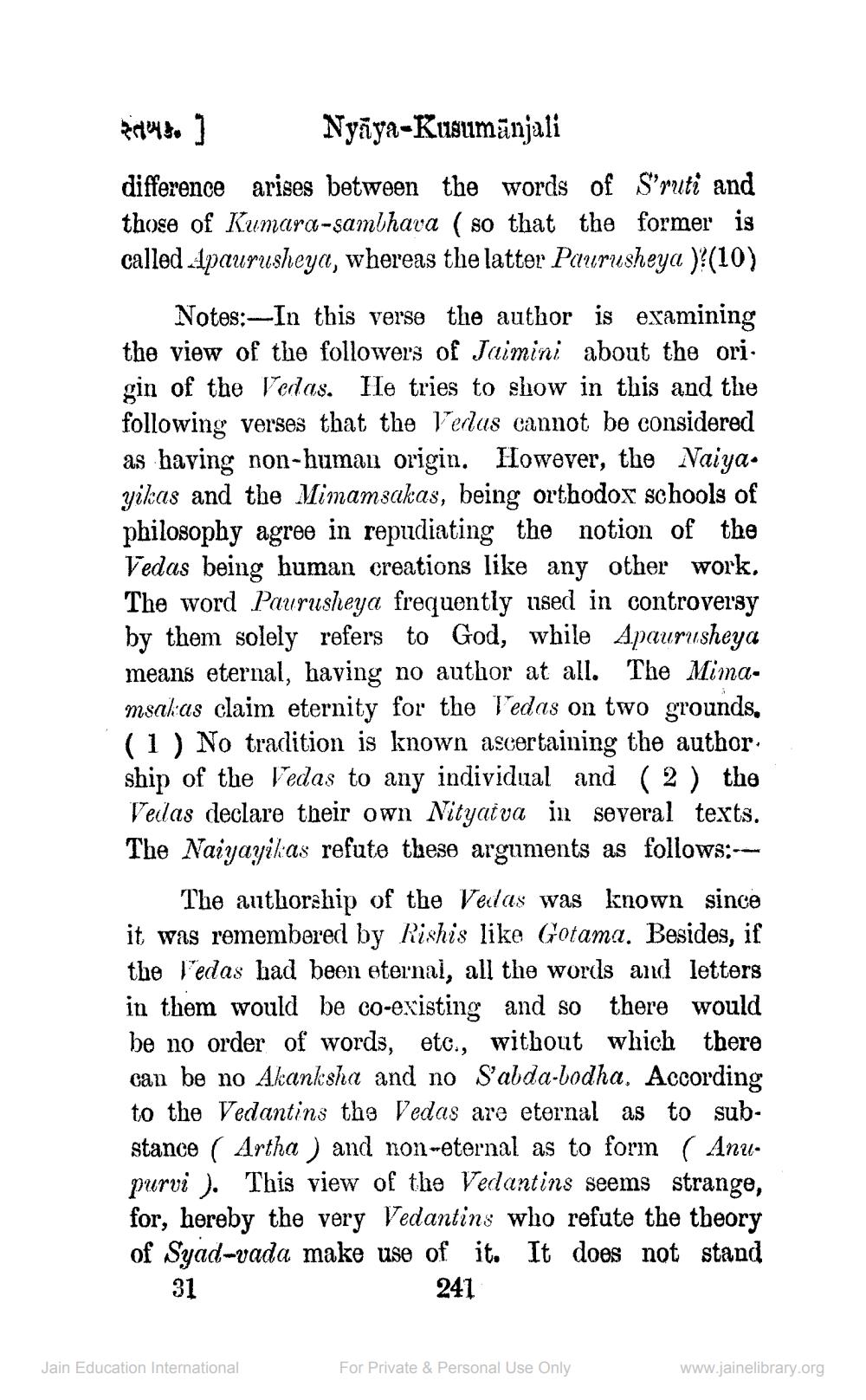________________
polyse] Nyāya-Kusumānjali difference arises between the words of Sruti and those of Kumara-sambhava ( so that the former is called Apaurusheya, whereas the latter Paurusheya )?(10)
Notes:-In this verse the author is examining the view of the followers of Jaimini about the ori. gin of the Vedas. He tries to show in this and the following verses that the Vedus cannot be considered as having non-human origin. However, the Naiya. yikas and the Mimamsakas, being orthodox schools of philosophy agree in repudiating the notion of the Vedas being human creations like any other work. The word Paurusheya frequently used in controversy by them solely refers to God, while Apaurusheya means eternal, having no author at all. The Mima. msakas claim eternity for the Vedas on two grounds, (1) No tradition is known ascertaining the author ship of the Vedas to any individual and ( 2 ) the Vedas declare their own Nityaiva in several texts. The Naiyayikas refute these arguments as follows:--
The authorship of the Vedas was known since it was remembered by Rishis like Gotama. Besides, if the ledas had been eternal, all the words and letters in them would be co-existing and so there would be no order of words, etc., without which there can be no Akanksha and no S'abda-bodha, According to the Vedantins the Vedas are eternal as to substance ( Artha) and non-eternal as to form ( Anupurvi ). This view of the Vedantins seems strange, for, hereby the very Vedantins who refute the theory of Syad-vada make use of it. It does not stand 31
241
Jain Education International
For Private & Personal Use Only
www.jainelibrary.org




